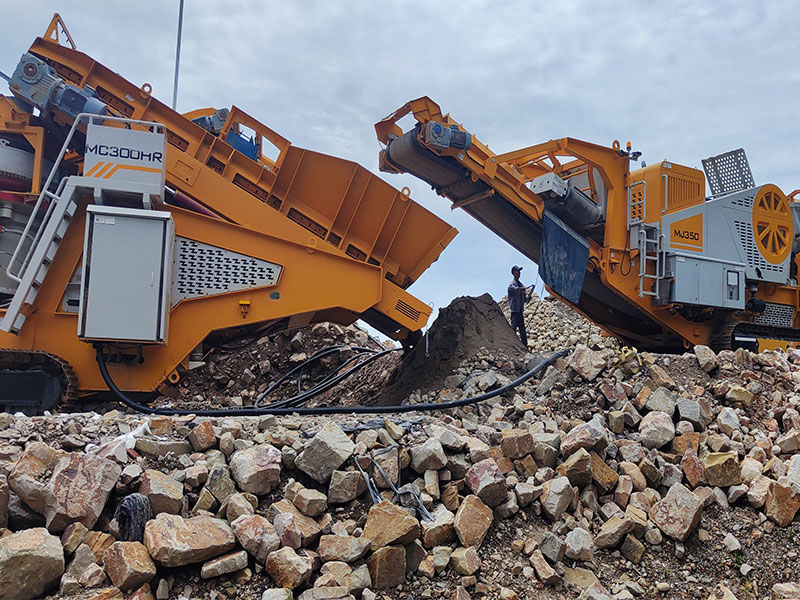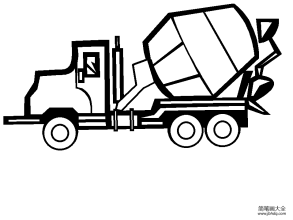Reducing Environmental Impact During Mobile Jaw Crusher Operation
- sophieaimix
- Feb 20, 2024
- 3 min read
Mobile jaw crushers play a vital role in various industries, including construction, mining, and recycling. While they are essential for efficient material processing, their operation can have significant environmental impacts if not managed properly. In this article, we will discuss strategies and best practices to minimize the environmental footprint of mobile jaw crusher operations.
Emission Control Technologies
One of the primary environmental concerns associated with mobile primary jaw crusher operation is the emission of pollutants such as particulate matter, nitrogen oxides, and hydrocarbons. To mitigate these emissions, manufacturers and operators can implement the following emission control technologies:

Diesel Particulate Filters (DPF): Installing DPFs on diesel-powered mobile jaw crushers can effectively capture and reduce particulate matter emissions, ensuring compliance with emission standards.
Selective Catalytic Reduction (SCR): SCR systems can be integrated into mobile jaw crushers to reduce nitrogen oxide emissions by converting them into harmless nitrogen and water vapor through chemical reactions.
Exhaust After-Treatment Systems: Advanced exhaust after-treatment systems, including diesel oxidation catalysts (DOC) and diesel particulate oxidation catalysts (DPoc), can further reduce emissions and improve air quality.
Energy Efficiency Measures
Improving energy efficiency during mobile jaw crusher operation not only reduces operating costs but also minimizes environmental impact by reducing the consumption of fossil fuels and lowering greenhouse gas emissions. Some energy efficiency measures include:
Optimized Crushing Processes: Implementing efficient crushing processes and adjusting operational parameters such as feed rate, crusher speed, and closed-side setting can improve energy efficiency and reduce fuel consumption.
Hybrid and Electric Powertrains: Transitioning to hybrid or electric powertrains can significantly reduce carbon emissions and dependence on fossil fuels, especially in urban areas and environmentally sensitive regions.
Idle Shutdown Features: Equipping the crawler mobile crusher plant with idle shutdown features can automatically turn off the engine during periods of inactivity, conserving fuel and reducing emissions.
Dust Suppression and Containment
Dust generation during mobile jaw crusher operation can pose environmental and health hazards, including air pollution and respiratory issues for workers and nearby communities. Implementing effective dust suppression and containment measures is essential to mitigate these risks:
Water Spraying Systems: Installing water spraying systems at strategic points along the crusher and conveyor belt can suppress dust emissions by dampening airborne particles and preventing them from becoming airborne.
Enclosures and Barriers: Erecting enclosures and barriers around the crusher and material transfer points can contain dust within the operational area, reducing dispersion into the surrounding environment.
Dust Collection Systems: Installing dust collection systems with baghouses or cyclones can capture and remove airborne dust particles, preventing them from escaping into the atmosphere.

Material Recycling and Waste Management
Promoting material recycling and implementing effective waste management practices can minimize the environmental impact of mobile jaw crusher operations by reducing the need for virgin raw materials and minimizing landfill waste:
On-Site Material Recycling: Mobile jaw crushers can be used to process construction and demolition waste into reusable aggregates and recycled materials, reducing the demand for new materials and conserving natural resources.
Segregation and Separation: Implementing segregation and separation techniques at the source can facilitate the recycling of concrete, asphalt, and other construction materials, diverting them from landfills and reducing environmental pollution.
Waste Reduction Strategies: Implementing waste reduction strategies such as source reduction, reuse, and recycling can minimize the generation of waste and promote a circular economy approach to material management.
In conclusion, reducing the environmental impact during the operation of mobile jaw crushers requires a comprehensive approach that addresses emissions control, energy efficiency, dust suppression, and waste management. By implementing the strategies and best practices outlined in this article, manufacturers and operators can minimize their environmental footprint while achieving sustainable and responsible material processing operations.






Comments